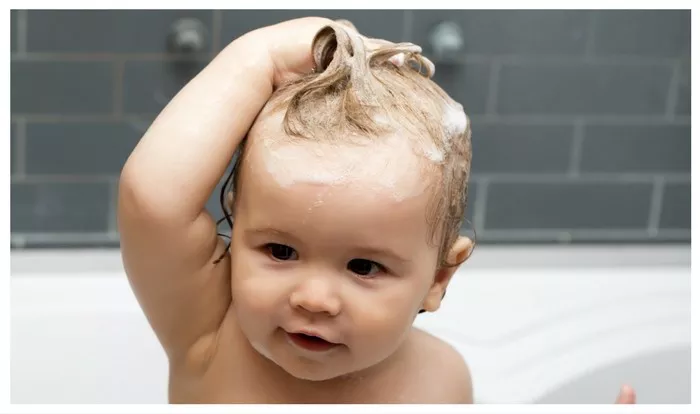Bringing a newborn into the world is a joyous occasion filled with endless moments of wonder and discovery. Among the many tasks that come with caring for a newborn is maintaining their delicate skin and hair. While newborns may not have a full head of hair like adults, their fine strands still require attention and care to keep them healthy and nourished. In this article, we’ll explore the essential aspects of moisturizing your newborn’s hair, from safety and product recommendations to application methods and common concerns.
Safety and Ingredients
When it comes to caring for a newborn’s delicate skin and hair, safety is paramount. Babies have sensitive skin that is more prone to irritation and allergic reactions, so it’s crucial to choose products with gentle, non-toxic ingredients. Look for baby hair care products that are free from harsh chemicals such as sulfates, parabens, and artificial fragrances.
Opt for products that contain natural, soothing ingredients like coconut oil, shea butter, and aloe vera, which provide hydration without causing irritation. It’s also essential to perform a patch test before using any new product on your baby’s skin to ensure they don’t have a negative reaction.
Product Recommendations
Fortunately, there are many baby hair care products specifically formulated for infants that prioritize safety and effectiveness. When choosing a moisturizer for your newborn’s hair, opt for gentle shampoos, baby oils, or conditioners designed to nourish and protect delicate strands.
Some popular baby hair care brands include:
1. Johnson’s Baby
2. Aveeno Baby
3. Mustela
4. California Baby
5. Babyganics
These brands offer a range of products specifically tailored to meet the needs of newborns, from gentle cleansers to nourishing oils and moisturizing creams.
Application Methods
Proper application is key to ensuring that baby hair care products are effective and safe for your newborn. Here’s a step-by-step guide on how to moisturize your baby’s hair:
1. Start by washing your baby’s hair with a gentle baby shampoo. Use warm water and lather the shampoo gently, taking care to avoid getting it in their eyes.
2. Rinse thoroughly with warm water, ensuring that all traces of shampoo are removed from their hair and scalp.
3. After washing, gently pat your baby’s hair dry with a soft towel. Avoid rubbing vigorously, as this can cause damage to their delicate strands.
4. Once their hair is dry, apply a small amount of baby oil or conditioner to their scalp and hair. Use your fingertips to massage the product gently into their scalp, promoting circulation and hydration.
5. Comb through their hair with a soft-bristled baby brush or comb to distribute the product evenly and detangle any knots or tangles.
Style their hair as desired, taking care not to pull or tug on their delicate strands.
Frequency of Care
How often you moisturize your newborn’s hair will depend on their individual needs and the climate in which you live. In general, newborns do not need to have their hair moisturized daily, as their scalp produces very little oil. However, if your baby has dry or flaky skin, you may need to moisturize their hair more frequently.
Aim to moisturize your baby’s hair 2-3 times per week, using a small amount of product each time to avoid over-saturation. Pay attention to how their hair and scalp respond to the moisturizer, adjusting your routine as needed to maintain optimal hydration without causing irritation.
Common Concerns
One common concern that parents may encounter when caring for their newborn’s hair is cradle cap. Cradle cap is a common condition characterized by flaky, dry skin on the scalp, which can sometimes extend to the eyebrows and other areas of the face.
To prevent or treat cradle cap, it’s essential to maintain a regular moisturizing routine for your baby’s hair. Gently massaging baby oil or a moisturizing conditioner into their scalp can help loosen and remove the scales, making it easier to wash them away during bath time.
If your baby develops cradle cap, avoid picking or scratching at the affected areas, as this can lead to irritation and infection. Instead, continue to moisturize their hair regularly and use a soft brush or comb to gently remove any scales.
If cradle cap persists or worsens despite your efforts, consult with your pediatrician for further guidance and treatment options.
Expert Opinions
To provide additional insights and professional advice on caring for your newborn’s hair, we spoke with Dr. Emily Wong, a board-certified pediatrician specializing in infant care:
“Keeping your baby’s hair and scalp clean and moisturized is essential for maintaining their overall health and comfort,” says Dr. Wong. “Choose products that are specifically formulated for infants and free from harsh chemicals that can cause irritation or allergic reactions. And remember to be gentle when washing and styling your baby’s hair, taking care to avoid pulling or tugging on their delicate strands.”
Dr. Wong also emphasizes the importance of consistency when it comes to caring for your baby’s hair. “Establishing a regular hair care routine early on can help prevent common issues like cradle cap and keep your baby’s hair and scalp healthy and nourished,” she advises. “If you have any concerns or questions about your baby’s hair care routine, don’t hesitate to reach out to your pediatrician for guidance.”
In conclusion, moisturizing your newborn’s hair is an essential aspect of caring for their delicate skin and promoting overall health and comfort. By prioritizing safety, choosing gentle products, and following proper application methods, you can help keep your baby’s hair soft, hydrated, and free from common concerns like cradle cap. And remember, when in doubt, always consult with your pediatrician for personalized advice and recommendations tailored to your baby’s unique needs.


